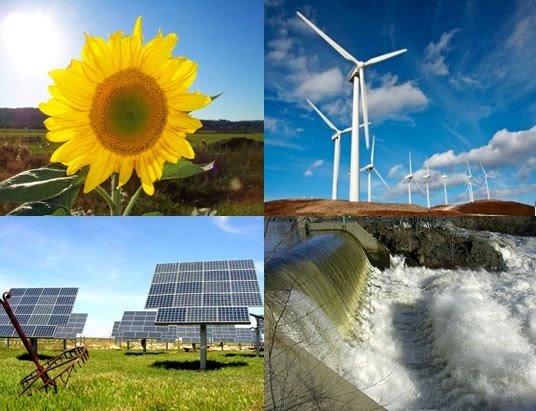
Ghana’s energy sector attracts Czech producers
02.05.2025 / 12:21 | Aktualizováno: 02.05.2025 / 13:18
The energy sector in Ghana is undergoing major reforms aimed at stabilizing finances, modernizing infrastructure and transitioning to sustainable energy sources. This transition offers opportunities for Czech companies in the areas of technology, investment and professional services.
Ghana is committed to implementing measures that will address climate change and its negative impact on the country’s socio-economic gains. Ghana has developed its National Energy Transition Framework 2022-2070, a long-term plan to achieve net zero emissions, which aims to decarbonize the energy sector so that the country can meet its international commitments under the Paris Agreement, which it signed in 2016.
Ghana’s Nationally Determined Contributions (NDCs) under the Paris Agreement outline two main goals related to the energy transition:
• increasing the share of renewable energy by 10% by 2030; and
• increasing the substitution of light crude oil for natural gas for electricity generation in thermal power plants by 120 million standard cubic meters.
High fuel import costs and limited domestic gas production increase Ghana’s energy vulnerability. In order to reduce dependence on expensive liquid fuels, domestic gas production is planned to increase from 60 to 100 million cubic meters per day.
Ghana’s energy mix
Ghana’s primary renewable energy sources include solar energy, which is efficient due to the country’s location near the equator, and hydroelectric power, such as the Akosombo and Bui dams. The rest is made up of biomass energy and waste-to-energy, including landfill gas and waste incineration. Ghana does not yet officially produce wind power for the national grid. In addition, the coastal country is considering the use of wave and tidal energy as a new, potentially efficient technology.
At the end of 2021, Ghana had an installed power generation capacity of 5,265 MW and a reliable power generation capacity of 4,706 MW. The total installed capacity included 3,753 MW of thermal power, 1,584 MW of hydropower and 144 MW from other renewable sources. This distribution highlights the potential for increasing the share of renewable energy in the current energy mix.
Ghana unveiled an ambitious $550 billion investment plan in 2023 to achieve carbon neutrality by 2060. The plan represents the country’s commitment to combat climate change while supporting economic development. The plan proposes a variety of sectoral changes and technologies. Four key decarbonization technologies – renewable energy, low-carbon hydrogen, battery electric vehicles and clean cooking – would cover more than 90% of the target emissions reductions by 2060. If the plan is achieved, 400,000 net jobs would be created in the Ghanaian economy. An influx of investment from international sources is also expected.
In this context, the World Bank approved $250 million in June 2024 to support Ghana’s energy sector reform, aimed at improving revenue collection and modernizing metering systems. The AfCFTA (African Continental Free Trade Area) also supports investment and trade between African countries, facilitating market access and simplifying business procedures.
Opportunities for Czech companies
The above and the experience from our own pond also represent opportunities for the Czech Republic. The main areas in which we see potential for Czech producers and investors are:
1. Renewable energy sources:
Objective: to increase the share of renewable sources in the energy mix from 3.1% in 2025 to 10% by 2030.
Opportunities:
Solar projects: installation and supply of solar panels on roofs, solar farms and solar street lighting, supply of wind turbines and battery storage.
Mini-grids: construction and operation of small distributed energy systems for rural areas.
Energy storage: integration of battery storage to stabilize energy supplies.
Infrastructure and technology: smart metering, distribution control and automation systems.
2. Electric mobility
Objective: support for the transition to electric vehicles (EVs) and construction of charging infrastructure.
Opportunities:
Construction of charging stations: development of public and private charging infrastructure for EVs.
EV production and distribution: investments in the production of electric vehicles and their components.
3. Clean cooking
Objective: introduction of modern cooking technologies to improve the environment and health of residents who use charcoal for cooking and improve women's opportunities to generate income.
Opportunities:
Distribution of modern stoves: import and distribution of efficient and environmentally friendly stoves.
Biofuel production: production and distribution of biofuels for domestic use and waste processing technologies.
Czech companies and investors can thus apply their solutions not only in Ghana, but also in other markets in sub-Saharan Africa that are facing the same problems, and thus demonstrate the high level of Czech technologies in the field of renewable sources and energy efficiency.
You can learn more about the specific situation, requirements and solutions in demand at the Africa Energy Technology Conference, which will be held in Accra from 27 to 29 May 2025. For details, see https://aetconference.com/about-us/#
Author: Beata Matusiková, Economic Diplomat, Embassy of the Czech Republic in Ghana




